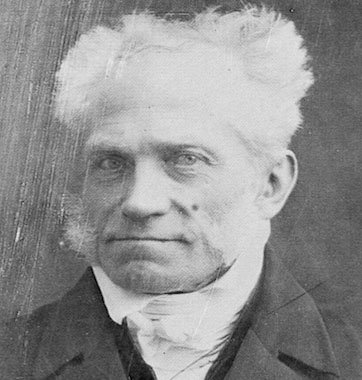The Deeper Meaning of Our Double-Sided Nature
The Deeper Meaning of Our Double-Sided Nature

Image Source
In thinking, we have that component given us which welds our different individuality into one with the universe. As we sense and feel, we are single beings, as we think, we are the all-one being that infests everything. We see appearing in us a force finish and outright in itself, a force which is universal however which we figure out how to know, not as it issues from the focal point of the world, yet rather at a point in the periphery.
Were we to know it at its source, we ought to comprehend the whole conundrum of the universe the minute we ended up plainly cognizant. Be that as it may, since we remain at a point in the periphery, and find that our own particular existence is limited by distinct breaking points, we should investigate the region which lies outside our own being with the assistance of thinking, which ventures into us from the universal world existence.
The fact that the thinking connects past our different existence and relates itself to the universal world existence, offers rise to the fundamental want for knowledge. Beings without thinking don't have this want. When they are looked with different things, no inquiries arise for them. These different things stay external to such beings. Be that as it may, in thinking beings the concept rises up when they defy the external thing. It is that part of the thing which we get not from outside but rather from within.
Percept isn't something finished and self-contained, yet one side of the total reality. The opposite side is the concept. The act of knowing is the blend of percept and concept. Just percept and concept together constitute the whole thing. The foregoing arguments demonstrate that it is senseless to search for any common component in the different entities of the world other than the ideal substance that thinking offers us. All endeavors to discover a unity in the world other than this internally sound ideal substance, which we pick up by a mindful thought of our percepts, will undoubtedly fall flat.

Image Source
Neither a humanly personal God, nor force, nor matter, nor the blind will, can be substantial for us as a universal world unity. All these entities have a place just with restricted spheres of our observation. Humanly restricted personality we see just in ourselves, force and matter in external things. To the extent the will is concerned, it can be viewed just as the statement of the activity of our limited personality.
Schopenhauer needs to abstain from making abstract thinking the carrier of unity in the world, and looks for rather something which presents itself to him quickly as real. He trusts that we can never approach the world inasmuch as we see it as external world. The looked for significance of the world which goes up against is nothing more than mental picture, or the entry from the world as simple mental picture of the knowing subject to whatever it might be other than this, would never be found at all if the specialist himself were nothing more than the purely knowing subject.
For the purely knowing subject in that capacity, this body is a mental picture like some other, an object among objects, its movements and actions are so far referred to absolutely an indistinguishable way from the progressions of all other saw objects, and would be similarly as unusual and boundless if their sense were not clarified in an altogether unique way. To the subject of knowledge, who shows up as an individual through his identity with the body, this body is given in two totally unique ways, once as a mental picture for shrewd thought, as an object among objects and complying with their laws, yet in the meantime specifically as the thing promptly known to everyone by the word will.
Each genuine act of will is on the double and no matter what additionally a movement of his body, he can't will the act without in the meantime seeing that it shows up as a movement of the body. The act of will and the action of the body are not two things objectively known to appear as something else, which the obligation of causality joins together, they don't remain in the connection of cause and effect, they are one and the same, however they are given in two altogether extraordinary ways, once directly and once in thought for the brains.

Image Source
Schopenhauer sees himself as qualified by these arguments to find in the human body the objectivity of the will. He trusts that in the activities of the body he feels a prompt reality, the thing-in-itself in the concrete. Against these arguments it must be said that the activities of our body come to our consciousness just through percepts of the self, and that they are not the slightest bit better than different percepts. In the event that we need to know their real nature, we can do as such just by a thinking examination, by fitting them into the ideal system of our concepts and ideas.
Established most profoundly in the naive consciousness of mankind is the opinion that thinking is abstract, with no concrete substance, it can give us an ideal counterpart of the unity of the world, however never the unity itself. Whoever judges along these lines has never influenced it to clear to himself what a percept without the concept really is. Give us a chance to perceive what this world of percepts resembles, a unimportant juxtaposition in space, a minor progression in time, a mass of detached points of interest. None of the things which come and go on the stage of perception has any direct association, that can be seen, with some other.
The world is in this manner an assortment of objects of equal value. None plays any larger part in the whole machinery of the world than some other. In the event that it is to become clear to us that either fact has more prominent noteworthiness than another, we should counsel our thinking. Were thinking not to work, the simple organ of an animal which has no noteworthiness in its life would seem equal in value to the most essential limb of its body. The different facts show up in their actual essentialness, both in themselves and for whatever is left of the world just when thinking turns its strings starting with one entity then onto the next.

Image Source
This activity of thinking is one brimming with content. For it is just through a very unequivocal concrete substance that we can know why the snail has a place with a lower level of organization than the lion. The simple appearance, the percept, gives no substance which could inform with regards to the level of flawlessness of the organization. Thinking offers this substance to the percept, from man's world of concepts and ideas. As opposed to the substance of percept which is given to us from without, the substance of thinking shows up deep down. The form in which this first shows up we will call intuition.
Intuition is for thinking what observation is for percept. Intuition and observation are the wellsprings of our knowledge. A watched object of the world stays ambiguous to us until the point that we have within ourselves the comparing intuition which includes that part of reality which is deficient in the percept. To anyone who is unequipped for discovering intuitions relating to the things, the full reality stays distant. Similarly as the color-blind individual sees just contrasts of shine with no color qualities, so can the individual without intuition watch just detached perceptual sections.
To clarify a thing, to make it coherent, amounts to nothing else than to place it into the setting from which it has been torn by the impossible to miss character of our organization as officially depicted. A thing cut off from the world does not exist. All confining has just subjective legitimacy for the organization. What appears to us in observation as independent parts becomes joined, bit by bit, through the lucid, brought together world of our intuitions. By thinking we fit together again into one piece all that we have dismantled through seeing.
Image Source

Reference:
The Philosphy of Freedom
By: Rudolf Steiner
thought provoking stuff
thoughts are the best @juvyjabian !
Thanks for sharing !
Hi, I'm seeing your publications are very good. I promise to give it to all of them. as long as you give me a please